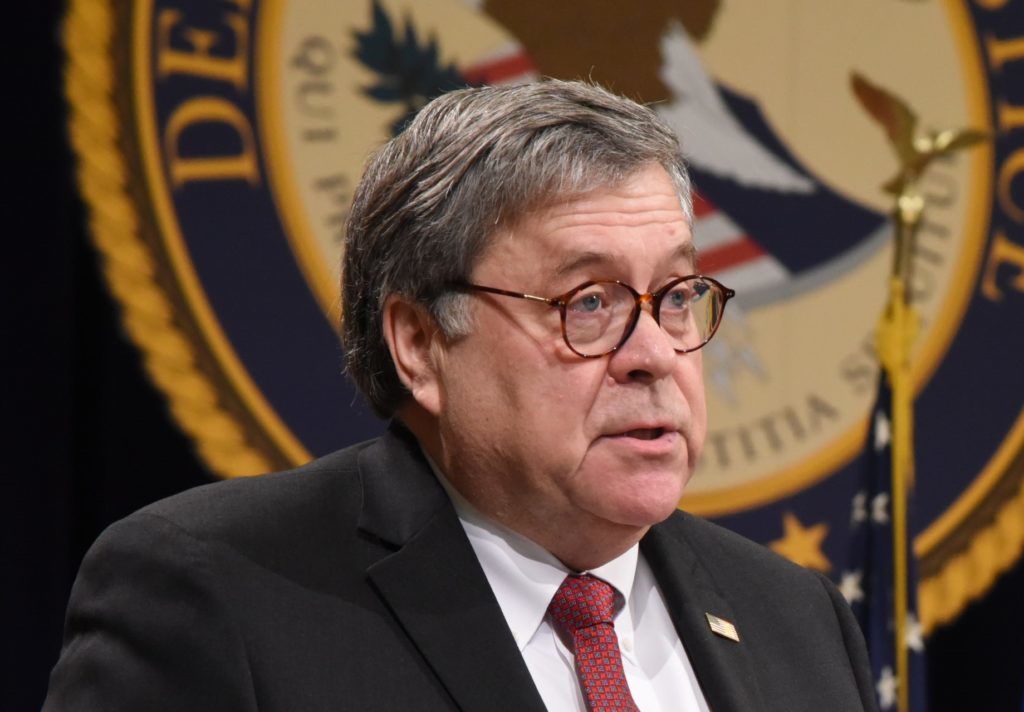Bill Barr’s recusal / non-recusal in the Jeffrey Epstein scandal just became even more suspicious

Back when Donald Trump’s old friend Jeffrey Epstein was first arrested on federal charges of sex trafficking of minors, Trump’s Attorney General Bill Barr let it be known that he was recusing himself from the case due to a tangential connection he had to Epstein’s prior lawyers. Then the next day Barr let it be known that he wasn’t recusing himself after all. Now the whole recusal / non-recusal thing has taken another suspicious turn.
Now that Jeffrey Epstein has died of an “apparent suicide” while in the custody of Trump’s Department of Justice, even Republicans in Congress are worried about how ugly this might get. Some of them are trying to insulate themselves from wherever this might be heading.
Republican Senator Ben Sasse formally asked Barr to confirm that Epstein’s original plea deal from a decade ago – which also protected unnamed co-conspirators – is no longer in place. According to the AP, Barr’s response is that he’s recused from all aspects of the 2008 plea deal.
How convenient. Bill Barr appears to still be overseeing any current criminal cases against Jeffrey Epstein’s alleged co-conspirators, but when it comes to whether or not the previous plea deal protects any of them, he can’t answer because he’s recused himself on that part of it. Barr is playing games on a cartoonish level here – and it suggests that he’s desperate to cover something up. In fact Barr’s actions are arguably the single most suspicious aspect of the entire Epstein scandal.
